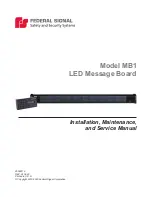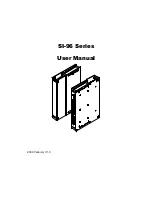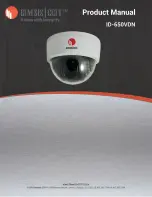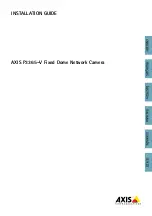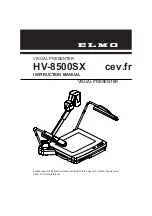
masterpage:Right
filename[G:\_Upload\3073074111\307307411MVCFD100UC\02GB-
MVCFD100UC\09add.fm]
A
d
ditio
n
al
inf
o
rm
at
ion
83
model name1[MVC-FD100/200]
[3-073-074-11(1)]
Additional information
Precautions
Cleaning the LCD screen
Wipe the screen surface with a
cleaning cloth (optional) or an LCD
cleaning kit (optional) to remove
fingerprints, dust, etc.
Cleaning the camera surface
Clean the camera surface with a soft
cloth slightly moistened with water,
then wipe the surface dry. Do not use
any type of solvent such as thinner,
alcohol or benzene as this may damage
the finish or the casing.
After using your camera at the
seashore or other dusty locations
Clean your camera carefully.
Otherwise, the salty air may corrode
the metal fittings or dust may enter the
inside of your camera, causing a
malfunction.
To protect data recorded on floppy
disks, note the following:
•
Avoid storing floppy disks near
magnets or magnetic fields such as
those of speakers and televisions.
Otherwise, permanent erasure of disk
data may result.
•
Avoid storing floppy disks in areas
subject to direct sunlight or sources
of high temperature, such as a
heating device. Floppy disk warping
or damage may result, rendering the
disk useless.
•
Avoid contact with the disk’s surface
by opening the disk shutter plate. If
the disk’s surface becomes
blemished, data may be rendered
unreadable.
•
Avoid getting liquids on the floppy
disk.
•
Be sure to use a floppy disk case to
ensure protection of important data.
•
Even when you use a 3.5-inch 2HD
floppy disk, image data may not be
recorded and/or displayed depending
on the using environment. In this
case, use a disk of other brand.
Your camera is designed for use
between the temperatures of 0°C to
40°C (32°F to 104°F). Recording in
extremely cold or hot places that
exceed this range is not recommended.
If the camera is brought directly from a
cold to a warm location, or is placed in
a very damp room, moisture may
condense inside or outside the camera.
Should this occur, the camera will not
operate properly.
Moisture condensation occurs
easily when:
•
The camera is brought from a cold
location such as a ski slope into a
warmly heated room.
•
The camera is taken from an air-
conditioned room or car interior to
the hot outdoors, etc.
How to prevent moisture
condensation
When bringing the camera from a cold
place to a warm place, seal the camera
in a plastic bag and allow it to adapt to
conditions at the new location over a
period of time (about an hour).
On cleaning
On floppy disks
On operating temperature
On moisture condensation
01cov.book Page 83 Thursday, November 29, 2001 1:20 PM
































